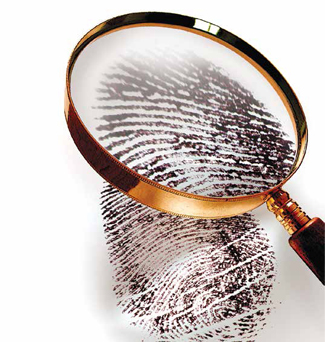Many cases have remained unsolved and the alleged accused are not found guilty by the courts for want of credible evidence. Even premier investigating agencies such as the CBI were found wanting in providing evidence strong enough to bring the guilty to book. But the malaise in our criminal justice system goes far deeper...
Unlike the regular tax desk which is manned by a tax officer whose job is to levy tax on you, this desk is manned by a non-serving tax officer who wishes to share his experience of 35 years in the tax department, while, discussing tax provisions. It is advantageous to know how the tax department thinks and acts when, as said by Benjamin Franklin, “In this world nothing is certain except death and taxes”

“We have many crimes but no criminals,” said one wise man. On the face of it, this statement may look contradictory, but if you see it from actual happenings, it appears true. Questions have remained unanswered. Who killed Arushi Talwar and Hemraj? Who killed Jessica Lal? Who were complicit in the big 2G scam, which required the Supreme Court to cancel 127 licences? There are similar unsolved cases where the alleged accused were not found guilty by the courts for lack of evidence. Even the evidence collected by our premier investigating agency, the CBI, was found wanting and not credible enough to award punishment.
The recent decision in the 2G scam by the court is an eye opener into our criminal justice system. The court questioned the manner of presentation of the case before it, the adequacy of evidence produced and even the correctness of the charge sheet. All the 42 alleged accused were acquitted as they were found not guilty and nobody was held responsible for the revenue loss of Rs.1.76 lakh crores. Our prosecution failed to establish a case of criminal conspiracy, which had led to such a mammoth scam. Loss of revenue did happen as spectrum was sold at the old price of 2001 on a first-cum-served basis, but there was no identifiable culprit. Our criminal justice system is not in good health and the same requires our utmost attention.
One big question is the lack of adequate police force. For a country of our size, the number of police personnel is very small for the protection of our people and for solving crimes. This problem is further aggravated by the deployment of police personnel on non-policing jobs like VIP bandobast. We are the lowest in the list of per capita police force vis-a-vis citizens. Due to this acute shortage, investigations of crimes are not adequately pursued. In most of the cases, only a routine job is done right from the lodging of the FIR to the stage of filing of the charge sheet.
Added to this, there is lack of passion in the police administration to solve cases. This is evident right from the stage of lodging of FIR where sometimes-delinquent officers do not apply their minds in portraying the facts of the case in a scientific manner, and the same adversely affects the path of investigation. The frequent transfers of investigating officers further affects the investigation and also causes delay in completing the case.
The second big problem is the lack of specialised training of our police force and the paucity of modern scientific equipment to assist the probe. In many cases, crimes are conducted by intelligent minds and with international footprint. To solve such crimes we need to interpret the intelligence with modern electronic gadgets and then the same has to be followed by processing the evidence recovered from the scene of the crime by modern forensic methods. Our system is not well equipped for this. Recently in a high profile case of alleged unnatural death, the investigating agencies took more than three years to find out the nature of the poison and that too was possible after the sample of the viscera was sent to the FBI in the US.
The next reason is the lack of domain knowledge among our force. Say, for example in the case of 2G scam it required in-depth knowledge of spectrum, which many well-educated people too do not have. To crack such a case, our force has to be well trained not only regarding spectrum but also about its loopholes which the culprits could have exploited. In the world of economic crimes, investigators need to know, in addition to the normal provisions of the Indian Penal Code, related laws such as Income Tax laws, Customs laws, money laundering laws, etc.
Today cybercrimes are on the rise, and to solve such crimes our officers have to be well versed in the intricacies of software and network technology. How can hacking and data related crimes be solved without such domain knowledge? In a globally connected world today, crimes with global ramifications can be solved only through specialised knowledge and training which the majority of our force is lacking.

Policing and investigating work have to be complemented by a wellequipped judicial system. Speedy adjudication of cases is a must, as we all know that justice delayed is justice denied. We have a well-respected and able judiciary with complete freedom to operate, but the sad situation is that it is too slow. More than three crore cases are pending, of which about 22 lakh cases are in the High Court, about 65,000 cases in the Supreme Court and the rest are in the lower courts. There are cases which are pending for more than 40 years. The judgement in the case of the murder of late L.N. Mishra, who was the country’s minister of Railways was given after 40 years by the trial court and the same is an illustration of the prevailing situation.
Our jails are crowded with under-trial prisoners and some for allegedly small crimes. Sometimes, one finds that the sentences given are of lesser duration than the period already spent in jails. There are some genuine reasons for delayed justice, such as shortage of judges and the habit of applying for adjournments by litigants. In recent days, the time of the higher courts has been seen to be wasted by frivolous PILs.
Our justice system also suffers from the problem of high cost of litigation. Prolonged litigation and high cost of advocates are the ingredients of our costly justice system. Like social inequality, there is also inequality amongst seekers of justice. Poor litigants remain in jail for longer periods as they cannot afford costly advocates through whom rich litigants are able to get faster bail. Sometimes, rich litigants deliberately try to delay the proceedings in the court when their case is bad. So justice is not fair and equitable as the litigants are not on an equal pedestal.
The government is the biggest litigant but like the poor litigant, it is also an unequal litigant, as government advocates in the courts have to fight cases against leading advocates of the region or of the country. It becomes more difficult for government appointed advocates as they have to depend on government departments to get the records which are not sent in time, the advocates are not briefed properly by the officers of the concerned department, whereas the opposite side is fully prepared with a battery of advocates.
‘There is lack of passion in the police administration to solve cases. This is evident right from the stage of lodging of FIR where sometimesdelinquent officers do not apply their minds in portraying the facts of the case in a scientific manner, and the same adversely affects the path of investigation’
Lastly, but not the least, corruption plays an important role leading to the miscarriage of justice, particularly at the lower level of policing and also at times at the lower judiciary level. The case is deliberately skewed to favour some litigants. If the case is weak to begin with, it does not stand at the trial stage or the appellate stage. The case falls and culprits escape due to a weak charge sheet or deliberate improper investigation. Rich and powerful litigants have more chance to succeed by bribing.
Coupled with corruption, there is also a lack of positive attributes to a large extent among our police force, such as devotion to duty, passion to excel and out-of-box innovative thinking in investigation work. We cannot expect good results from our system, which does average work, as a mere routine.

How do we improve our system? It is difficult but quite possible. To begin with, we have to increase the strength of our police force so that the ratio between the police force and the population improves. This process should be undertaken gradually every year, considering budgetary resources. We have also to spend on modern equipment for crime detection and intelligence tapping. There should be an improved protocol on training. Considering the nature of crimes, domain expertise in each area of crime should be imparted. For elite agencies like the CBI, IB and DRI there should be a system in place to update their expertise on a periodic basis by even deputing officers overseas, for training.
Our forensic laboratories should be strengthened. There should be nurturing of our forces in matters of discipline, devotion to duty and passion to excel. Dereliction of duty and issues of corruption should be punished while honest meritorious work should be appreciated and even rewarded. Officers should be assigned responsibility and should be held accountable for any lapse on the part of their team. There should be a complete disjoint between the police force and politicians. CBI should be made an autonomous agency and should no longer be a parrot in the cage. Officers should have fixed duration posting and frequent transfers should be avoided, except for genuine reasons.
Our judicial system needs urgent reform. There should be a system in place so that the time of the court is not wasted by routine adjournments and frivolous cases. Since the government is the biggest litigant, the process should begin by limiting the number of cases filed. The government should not file appeals if the revenue involved is very small.
We should have more fast track courts to deal with cases of serious crimes and particularly corruption cases. The government should appoint pleaders based on merit and not on extraneous reasons as they play a vital role pleading in the interest of the society and the country. Our education system in the field of law should be improved and it should frequently be updated so that we can produce brighter advocates and judges.
‘Like social inequality, there is also inequality amongst seekers of justice. Poor litigants remain in jail for longer periods as they cannot afford costly advocates through whom rich litigants are able to get faster bail. So justice is not fair and equitable as the litigants are not on an equal pedestal’
The Law Commission and the government should put more efforts in amending the provisions of law, which give rise to unnecessary litigation. There should be no grey areas and our provisions of law should be black and white. Irrelevant laws and provisions should be repealed.
The liquidation of piled up cases before courts should be taken on a mission mode, and for this, more judges should be appointed and vacancies filled without delay. The time of the court should not be wasted by endless numbers of PILs. There should be a clear check on this. There should be a direction by the CJI and the chief justices of the High Courts that orders passed by the lower courts should be Speaking Orders based on facts of the case and the position of the law.
by S K Jha